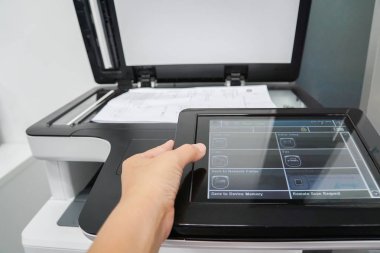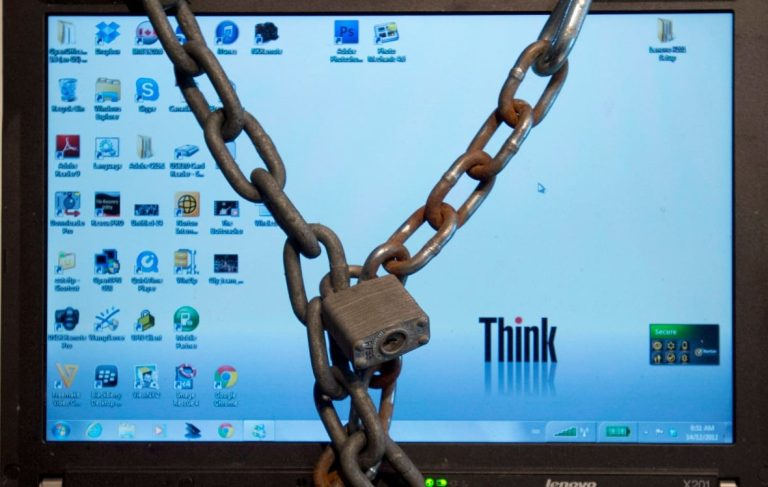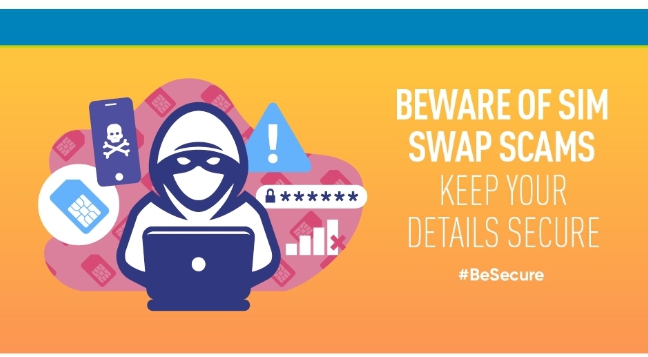Don’t Fall for Printer Support Scams: How to Protect Yourself |2023|
Printer support scam is a type of online fraud where scammers pose as technical support representatives and offer fake support services to users.

They often use tactics such as phone calls, pop-up messages, and phishing emails to trick victims into believing that their printer has a problem and needs immediate attention.
The scammers may then ask for remote access to the user’s computer, or request payment for their supposed services.
Printer support scams can result in financial loss, identity theft, and damage to computer systems. It’s important for users to be aware of these scams and take steps to protect themselves from falling victim.
In this article, we’ll explain how printer support scam work, the warning signs to watch out for, and how to protect yourself from becoming a victim.
How Printer Support Scams Work
Common tactics used by scammers.
Examples of scam scenarios.
Scammers often use a variety of tactics to trick victims into giving them access to their computer or paying for fake support services.
Here are some common tactics used by these scammers:
1. Phone calls
Scammers may call victims and pretend to be from a legitimate printer company, such as HP or Canon. They may claim that they have detected a problem with the victim’s printer and offer to fix it for a fee.
2. Pop-up messages
Scammers may create fake error messages or pop-ups on victims’ computers, claiming that their printer is malfunctioning and that they need to call a support number for assistance.
3. Phishing emails
Scammers may send phishing emails that appear to be from a legitimate printer company, with the goal of tricking victims into clicking on a link or downloading an attachment that installs malware on their computer.
Once scammers have gained a victim’s trust, they may request remote access to their computer, install malware or other harmful software, or ask for payment through wire transfer, gift cards, or other untraceable methods.
Here are some examples of printer support scam scenarios:
1. A victim receives a phone call from someone claiming to be from a printer company. The scammer tells the victim that their printer has a problem and offers to fix it for a fee. The victim provides their credit card information and pays the fee, but their printer is not actually fixed.
2. A victim receives a pop-up message on their computer claiming that their printer is not working. The message prompts them to call a support number for assistance. The scammer on the other end of the line convinces the victim to give them remote access to their computer, and then installs malware or other harmful software.
3. A victim receives a phishing email that appears to be from a legitimate printer company. The email claims that there is a problem with the victim’s printer and prompts them to click on a link or download an attachment. Doing so installs malware or other harmful software on the victim’s computer.
Warning Signs of Printer Support Scams
To avoid falling victim to printer support scam (s), it’s important to be aware of the warning signs and red flags that indicate a scam.
Here are some things to watch out for:
- Unsolicited phone calls or emails claiming to offer printer support: If you receive a phone call or email from someone claiming to offer printer support, be wary, especially if you didn’t request any support.
- Pressure to act quickly or urgently to resolve a supposed issue: Scammers often use high-pressure tactics to get victims to act quickly and hand over sensitive information or payment. Be cautious if you are being pressured to act urgently or to make an immediate payment.
- Requests for remote access to your computer or for personal information like credit card numbers: Legitimate support providers will rarely ask for remote access to your computer or for sensitive personal information like credit card numbers. If a support provider is asking for this kind of information, it’s likely a scam.
To verify whether a printer support provider is legitimate, there are a few things you can do:
- Check the company’s website: Legitimate companies will have a professional-looking website that clearly lists their services and contact information. If the website looks unprofessional or doesn’t list a physical address or phone number, it may be a scam.
- Search for reviews or complaints: Search online for reviews or complaints about the company. If there are many negative reviews or complaints about the company’s support services, it’s likely a scam.
- Contact the printer company directly: If you are unsure whether a support provider is legitimate, contact the printer company directly to confirm whether they work with the provider in question.
Consequences of Falling for Printer Support Scams
Falling for printer support scams can have serious consequences, including:
- Financial loss: Scammers often charge victims for fake support services, and may continue to charge their credit card or bank account if they have access to that information. Victims may also be asked to pay through untraceable methods like wire transfer or gift cards, making it difficult to recover their money.
- Identity theft: Scammers may ask for personal information like credit card numbers, social security numbers, or login credentials for email or banking accounts. This information can be used to steal a victim’s identity, open new credit accounts, or access their bank accounts.
- Damage to computer and printer systems: Scammers may install malware or other harmful software on victims’ computers or printers, which can cause damage to the system or compromise the victim’s data.
In addition to these consequences, falling for printer support scam can also be a time-consuming and stressful experience for victims, who may have to spend hours trying to recover their lost money or clean up their computer system.
It’s important to be vigilant and take steps to protect yourself from these scams to avoid these consequences.
Read also: How Aura can protect your finances and Identity from Scammers
Steps to Protect Yourself from Printer Support Scams
Here are some steps you can take to protect yourself from printer support scams:
1. Be cautious: If you receive an unsolicited phone call or email claiming to offer printer support, be cautious.
Scammers often use high-pressure tactics to get victims to hand over personal information or remote access to their computer.
If something seems suspicious, it’s better to be safe than sorry.
2. Don’t give out personal information: Legitimate support providers will never ask for personal information like credit card numbers, social security numbers, or login credentials for email or banking accounts.
Be wary of any support provider who asks for this kind of information.
3. Don’t allow remote access to your computer: Scammers may ask for remote access to your computer to install malware or other harmful software.
Only allow remote access to your computer if you are sure the support provider is legitimate.
4. Verify support providers: Before giving out personal information or allowing remote access to your computer, verify that the support provider is legitimate.
Check their website for contact information, search for reviews or complaints online, or contact the printer company directly to confirm whether they work with the provider in question.
5. Keep your computer and printer software up to date: Make sure you regularly update your computer and printer software to help prevent vulnerabilities that scammers can exploit.
If you believe you have fallen victim to a printer support scam, it’s important to report it.
Here are some resources for reporting scams and finding legitimate support services:
FTC Complaint Assistant: The Federal Trade Commission (FTC) provides a Complaint Assistant tool for reporting scams.
Better Business Bureau: The Better Business Bureau (BBB) provides a Scam Tracker tool for reporting scams and finding legitimate support services.
Printer company support: Contact the printer company directly to report a scam or to find legitimate support services.

Conclusion
In conclusion, printer support scams are a common type of fraud that can result in financial loss, identity theft, and damage to computer and printer systems.
To protect yourself from these scams, it’s important to be aware of the warning signs, verify support providers, and avoid giving out personal information or remote access to your computer.
By following these steps, you can help reduce the risk of falling victim to this type of scams. It’s also important to report scams and spread awareness to help others avoid becoming victims.
Remember, if you receive an unsolicited phone call or email claiming to offer printer support, be cautious and take steps to verify the legitimacy of the support provider.
With a little bit of awareness and caution, you can protect yourself from printer support fraud and keep your computer and personal information safe.

FAQ: Printer Support Scam: How to Protect Yourself
Q1: What is printer support scam?
A printer support scam refer to deceptive tactics employed by scammers to trick individuals into seeking assistance for printer issues that don’t exist. These scammers pose as legitimate printer support providers and aim to gain access to sensitive information or extract money from unsuspecting victims.
Q2: How can I protect myself from printer support scams?
To protect yourself from printer support scams, consider the following measures:
- Be cautious of unsolicited calls or pop-up messages claiming to offer printer support.
- Only seek assistance from reputable and trusted printer support providers.
- Verify the legitimacy of the support provider by independently researching their contact information.
- Never provide personal or financial information to unsolicited callers or suspicious websites.
- Regularly update your printer’s firmware and security software to minimize vulnerabilities.
Q3: What are the warning signs of a printer support scam?
Look out for the following warning signs that may indicate a printer support scam:
- Unsolicited calls or messages claiming to offer immediate printer support.
- High-pressure tactics or threats to act quickly to resolve alleged printer issues.
- Requests for remote access to your computer or printer without proper verification.
- Demands for payment upfront or requests for payment through unconventional methods.
Q4: How can I verify the legitimacy of a printer support service?
To verify the legitimacy of a printer support service, consider these steps:
- Research the company or service provider independently through their official website or reputable sources.
- Check for customer reviews and ratings to gauge their reputation.
- Contact the printer manufacturer directly to inquire about authorized support providers.
- Avoid relying solely on contact information provided by unsolicited callers or suspicious websites.
Q5: What should I do if I suspect a printer support scam?
If you suspect a Fraud, take the following actions:
- Hang up or disconnect from any suspicious calls or pop-up messages.
- Refrain from providing any personal or financial information.
- Report the incident to your local law enforcement authorities.
- Notify your bank or credit card company if you have already provided payment details.
- Inform the printer manufacturer about the scam to help prevent others from falling victim.
Q6: Are there any additional precautions I can take to safeguard against printer support scams?
Absolutely! Here are some additional precautions to consider:
- Enable firewalls and antivirus software on your computer to block suspicious activities.
- Regularly monitor your bank and credit card statements for any unauthorized charges.
- Educate yourself about common scam tactics and stay updated on the latest printer support scam trends.
- Share information about printer support frauds with friends, family, and colleagues to raise awareness.




![The Future of Digital Privacy and How Surfshark is Leading the Way [2023]](https://gotocyberprotect.com/wp-content/uploads/2023/10/kruger-park-accommodation-st-the-outpost-590x390-1.jpg)

